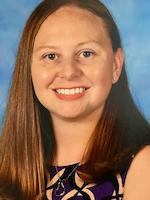

The objectives for Algorithms All Around - Sneaking Computer Science Into Content are to engage teachers to learn more about how to integrate computer science into all subjects in the classroom. Participants will leave this session with a complete understanding of what Computational Thinking is and how to identify algorithms both in and out of the classroom. Participants will feel empowered to create their own unique lessons utilizing both computer science and content.
Regardless of the technology available in their schools, participants will be able to integrate computer science with their students. By using both "unplugged" and technology driven methods all teachers will have access to sneaking CS into their classroom content.
This session is not fully reliant on technology as we will be identifying ways teachers can use CS "unplugged"- without any technology. We will also be demonstrating the use of different coding software and technologies such as: Scratch, MakeyMakey, BlueBots, and Ozobots.
Participants will gain an understanding of CS throughout the presentation by learning real world applications already used in classrooms, engaging in hands-on stations, and brainstorming as a team ways to create engaging opportunities for students.
Sharing computer science lesson plans will help teachers kickstart their own CS curriculum by providing scaffolding for all grades K-5. Lessons will be distributed electronically via Google Drive links.
Teachers can define a successful CS lesson in two ways. The first is student engagement. Teachers will watch all students, regardless of their background, be excited to contribute to solving real world problems. The second is providing students with a deeper understanding of both algorithms and the curriculum objectives.
This engaging session defines computational thinking, algorithms, unplugged coding, and more. Believe it or not, algorithms are all around and with a little help you too will begin to see the natural ways computer science can be integrated into your classroom. Leave with hands on lessons ready to use.
Content and activities: Teacher will learn computer science through computational thinking and identifying algorithms that provide challenging questions to their students. Throughout this session teachers will learn the basics of CS, engage in hands-on activities utilizing the technology and "unplugged" lessons, and collaborate with others in the session.
Time: 20 minute presentation, 30 minute hands-on stations, 10 minute discussion and reflection
Process: Whole group instruction, technology based small group centers, "unplugged" small group centers, peer-to-peer brainstorm and lesson development.
https://www.iste.org/explore/In-the-classroom/6-reasons-for-coding-in-K-5-classrooms
https://www.iste.org/explore/Computational-Thinking/5%2Bthings%2Byou%2Bcan%2Bdo%2Bto%2Bbring%2Bcomputer%2Bscience%2Bto%2Ball%2Byour%2Bstudents
https://www.lcps.org/Page/235030
https://www.codevirginia.org/
https://www.brookings.edu/research/what-do-we-know-about-the-expansion-of-k-12-computer-science-education/#:~:text=Multiple%20studies%20indicate%20that%20CS,et%20al.%2C%202020).
| Related exhibitors: | Ozobot |